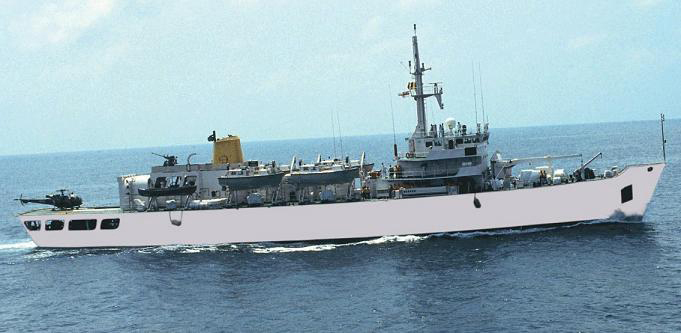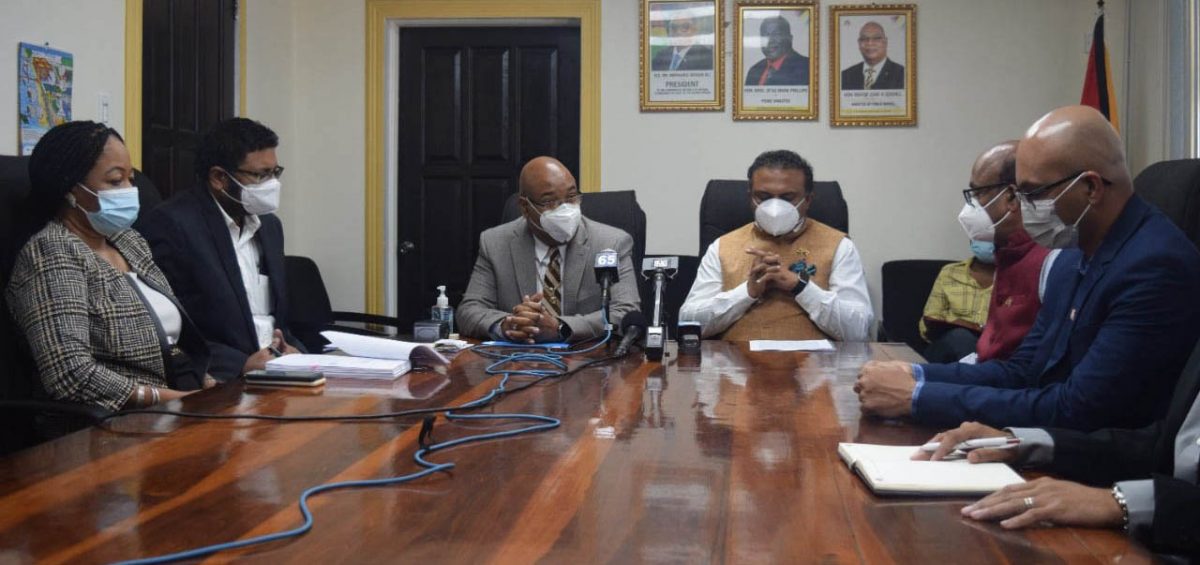Ordinary Guyanese as well as the country’s business community will be keen to see the outcomes of the US$12.7 million agreement between the governments of Guyana and India signed earlier this month for the design, construction, and supply of an ocean-going passenger and cargo vessel for the Caribbean Community (CARICOM) member country.
In the context of the challenges that have long confronted Guyana in the areas of in-country travel and the movement of cargo to and from interior to coastal locations, ordinary Guyanese as much as the business community will be monitoring progress towards the realisation of this agreement as well as the specific outcomes.

The signing involved an agreement between the local Transport and Harbours Department in Georgetown and the Indian company, Garden Reach Shipbuilders & Engineers Ltd (GRSE), and is being undertaken by India’s Ministry of Defence through a grant from the Indian Government.
GRSE is a major Indian shipbuilding company administered by the country’s Ministry of Defence to cater to the shipbuilding requirements of the Indian Coast Guard. In addition to its ship- and warship-building capabilities, GRSE is also reportedly engaged in engine production and other engineering activities.
The initiative comes against the backdrop of an existing weak in-country transportation regime, particularly between the coastal region and interior. Some of the vast swathes of hinterland separated by expanses of both river and forest, will, when the new ferry is put into service, hopefully improve the level of efficiency of the transportation system, a circumstance that could have significant implications for the development of the country’s interior regions.
The new ferry, when introduced here, will presumably be seeking to tackle head-on, the raising of standards associated with the movement of cargo, including vital food supplies to challenged interior locations as well as the movement of produce from those locations to the coast. In the context of the challenges that have long arisen out of the inefficiency of coast to hinterland transport, the new ferry could be a ‘win-win’ situation for the local private sector as well as for the social and economic enhancement of the interior communities that will be impacted by the service.
Information disclosed regarding the vessel and its mission indicates that it will “ply the north-west, south-west route up to Kwakwani in the Berbice River” and that it will be used “as a coastal as well as a river service vessel.” Under the terms of the contract, the Government of Guyana will have funds at its disposal with which to render efficient the marine equipment that will serve the vessel.
Time is of the essence for the coming into service of this long-awaited development though the beneficiaries are likely to have to wait out a period of at least a year, perhaps more, if a headline in the January 14 issue of the state-run Guyana Chronicle asserting that the new ferry “could set sail in 2022,” is anything to go by.
At the signing ceremony, Public Works Minister Juan Edghill seemed unable to resist infusing an element of parochial politics into the event, noting that while, according to the Chronicle, the project “had already been finalized during the People’s Progressive Party/Civic (PPP/C)’s previous stint in government” the administration had returned to office following a five-year hiatus to find that “no contract was awarded and signed… no ferry was built, and the monies still available.”
According to the Minister, the previous A Partnership for National Unity + Alliance for Change (APNU+AFC) Government had attempted to award the contract to the highest bidder, which he said, “was not flying at the procurement levels.”
Attempts to effectively address river transportation issues here have been stymied by woefully unreliable schedules, maintenance challenges that have created the protracted removal of vessels from service, and limitations to local servicing and repairs capabilities that have necessitated government’s reaching out to foreign companies for help. While all this has been happening the country has had to face the multi-faceted consequences of the continued retardation of communities impacted by the lack of an efficient river transportation system.






